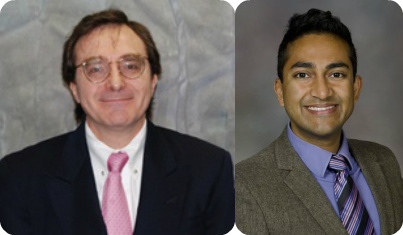In an exchange published in the Journal of Clinical Epidemiology, researchers take turns highlighting major problems in the way psychiatry is currently practiced in the United States. In response to an article by Vinay Prasad calling for an insistence on randomized control trials in “evidence-based” medicine, Jose de Leon, from the Mental Health Research Center at the University of Kentucky, begins the back-and-forth by pointing out that this type of evidence has been detrimental to the field of mental health.

Dr. Leon writes in a Letter to the Editor:
“In the United States, psychiatric practice is currently saddled with two major problems. First, medications are overprescribed, frequently by non-psychiatrists, for conditions that are not medical diseases but variants of normality, in which medications may not be better than placebo. Mechanistic thinking led to a series of second generation psychiatric drug randomized clinical trials (RCTs). After getting rich by marketing more expensive Me-Too drugs with less adverse reactions, the pharmaceutical companies have largely abandoned psychiatry, whereas the National Institute of Mental Health (NIMH) has taken a wrong turn by neglecting to improve psychiatric clinical diagnoses.”
“Second, approximately 5% of US population has severe mental illnesses (SMIs): schizophrenia, bipolar disorder, severe depression, and catatonia [6]. Long-term RCTs to guide treatment for SMIs would be ideal, but who would supply the funding for such an endeavor? From a historical standpoint, SMI patients were ‘‘stored’’ in state hospitals in the 19th century; now they are ‘‘stored’’ in the US penal system with very limited access to the treatments discovered by 20th century clinicians [electroconvulsive therapy (ECT), first-generation antipsychotics and antidepressants, and lithium]. These discoveries were serendipitous, with limited if any mechanistic thinking, and did not use RCTs. Now in the 21st century, US society frequently denies incarcerated or otherwise vulnerable individuals with SMI access to these potentially effective treatments, to say nothing of funding new RCTs to improve evidence for their use.”
In his response, Prasad, from the Oregon Health and Science University, agrees with Leon about the dire state of modern psychiatry but disagrees that randomized control trials cannot be of use in improving the existing evidence. He writes:
“Dr. Leon accurately highlights many of the frustrations of modern psychiatry. First, costly, novel drugs are often tested in unrepresentative populations with short-term follow-up. Second, there has been indication drift in psychiatry, and medications are used for conditions that may simply be normal variants and not true pathology. Third, social support in the United States is inadequate, and many people suffering from mental health disorders are simply imprisoned. Fourth, we are in the midst of a prescription opioid epidemic. Fifth, funding for mental health research is abysmal. These are all unfortunate truths, and I share his frustration. However, I do not believe these problems developed as a result of the thesis of our article: that mechanistic science is simply not good enough to adopt new therapies, and instead, we need randomized trials assessing clinically meaningful end points.”
. . .
“Here is how I would suggest we rectify this issue. For all new practices, I believe we have to demand robust evidence before implementation. For existing practices, like the ones Dr. Leon mentions, I believe we have to prioritize and begin subjecting them to randomized study. We can start with indications for which equipoise exists and expand if trials show no benefit.”
. . .
“Our article tries to improve the evidence base for clinical medicine. I think Dr. Leon is correct with every problem he listed, but I think he is mistaken to think better evidence is has caused or is hindering fixing these problems. The true cause of these problems in psychiatry is a lack of research support, societal support, and perverse financial incentives. To some degree, it is apathy among practitioners toward evidence-based medicine, but likely only a very small degree. Evidence alone will not be the solution, but together with a rational research agenda and appropriate funding, I believe better evidence will be a good thing for patients suffering from mental health ailments.”
*
Prasad, V. and Ho, N., 2014. Why do we continue to adopt medical practices based on pathophysiology alone when we should be insisting on clinical trials?. Journal of clinical epidemiology, 67(4), p.361. (Abstract)
Leon, J., 2016. Pathophysiology and clinical trials have limitations in some areas of medicine: focus on psychiatry (letter commenting: J Clin Epidemiol. 2014;67(4):361-3.)
Prasad, V., 2016. Reply to Dr. Leon: true but unrelated. Journal of Clinical Epidemiology.(Abstract)















Could all this recent attention paid to “evidence bases” be in (direct or indirect) response to Bob Whitaker’s recent focus on this?
Report comment
Or just the superstitious belief that double-blind placebo-controlled studies are the be-all and end-all to medication/treatment studies, despite the method being totally unverified in the 60-odd years it’s been around?
Report comment
Dear bcharris ~ what do you mean by your comment that it is a superstitious belief that double-blind, placebo controlled studies are the “best in treatment studies” despite the method being totally unverified???? My thoughts differ on this completely! Having been involved in Clinical trials for ~ 30 years at every level. We would not have so many drugs & treatments that have changed the face of medical practice in the world without them – take for example AZT for both HIV as well as to prevent transmission of the virus in pregnant women to the fetus, monoclonal antibodies for RSV etc and most especially the randomized clinical trial done by Dr. Bernard Fisher in PBG PA re breast cancer surgery. The man was vilified and the trial finally proved women did not do any better with radical mastectomy! Looking at psychiatry I find many flaws in clinical trials but will describe 2 – When reviewing data on antidepressants the trials are exceedingly short with little to no follow-up and thus the results are not adequate when most pts take antidepressants for years. You can’t even speak to side effects seen over time or lack of efficacy! Also there is a problem with the suffering that people endure if schizophrenic when on the placebo arm. On the other hand what about pts who died or suffered disease progression when on placebo for HIV trials? Mental illness is still thought of as a character defect in the USA and MD’s and psychiatrists have been very slow to advocate for the patients!!! How long have Insurance Companies discriminated between payment for medical illness VS psychiatric suffering until the Paul Wellstone and Pete Domenici Mental Health Parity and Addiction Equity Act of 2008? I wonder why patients and their families are left to fight alone and why practitioners aren’t working harder on behalf of this population? DO you know how many psychiatrists etc accept Medicare??? or reduced fees??? Exceedingly few in the huge city I live in ~ it’s strictlly pay for service and the practitioners get rich! Why aren’t professionals in the field trying to change things for their patients?
Report comment
I tried to make an evidence based psychiatry addition to Wikipedia but other editors were offended by my statement of fact of the billions of dollars are made by those that invent the diagnosis.
In theory I could appeal to other Wikipedia editors , but I do not know the protocol procedure.
Report comment
It is about time the epidemiologists decry major problems in psychiatric practice. But the researchers are always claiming a lack of money for research, when I think billions have already gone into psychiatric research. It’s just that the research was geared toward proving the DSM diagnoses were valid, but the DSM diagnoses are not scientifically valid. So billions of dollars were wasted researching fraudulent psychiatric theories.
And I’m pretty certain the truth is that the ADHD drugs and antidepressants can create symptoms that mimic the “bipolar” symptoms, as can other drug classes, and these are often misdiagnosed. And today’s recommended “bipolar” drug cocktails are known to create the symptoms of “schizophrenia,” via anticholinergic toxidrome poisoning. And the “schizophrenia” “cure,” the neuroleptic drugs, can create both the negative symptoms of “schizophrenia,” via neuroleptic induced deficit syndrome, and the positive symptoms of “schizophrenia,” via the central symptoms of neuroleptic induced anticholinergic intoxication syndrome. And these drug induced syndromes are almost always misdiagnosed as one of the billable DSM disorders, too. Which likely means if our society stopped allowing the psychiatrists to coerce and force these toxic, mind altering drugs onto innocent human beings, we’d see a huge decrease in “mental illness.”
Report comment
But, of course, this wouldn’t be profitable for the drug companies, the governments who have already made $37 billion or so from suing the drug companies, the doctors, the religious and for profit hospitals, and all the child molesters who want to maintain their easy way to cover of child abuse, by having the psychiatrists turn the child abuse victims into “schizophrenics” with the neuroleptic drugs.
Symptoms or concerns of child abuse are not a brain disease, which require neuroleptic drugs, but the psychiatrists believe they are. 2/3’s of all so called “schizophrenics” today are child abuse victims. And the neuroleptics do, in fact, create both the negative and positive symptoms of “schizophrenia” all by themselves. I do so hope we start arresting the child molesters, rather than defaming and torturing the victims, some day soon.
http://psychcentral.com/news/2006/06/13/child-abuse-can-cause-schizophrenia/18.html
Only in a way too paternalistic society would we have an industry whose primary actual function is covering up child abuse. Kudos to the psychiatrists, and now you know why some of us do not respect your industry.
Report comment
I have come across no trustworthy information suggesting that psychiatric drugs are anything but money makers for the pharmaceuticals and the psychiatrists. Given the home lives of many children and the over all conditions in which they grows up in this nation I am surprised there are not more “mentally deranged” persons. The food supply is getting worse. The environment continues to be poisoned. Medical care in the USA is often deplorable as is education. Mental patients are often people who can not tolerate the mess the nation is in. These mentally ill persons are symptoms of conditions the corporations and gov create in their pursuits of power and wealth. Since the Powers do not wish to change thelr course of action we have the mentally ill to dispose of somehow. Drugging them seems simplest and cheapest. It is a challenge for everyone to stay healthy in a bad society. We have to get the point where we can accept the fact that the USA is a bad society and getting worse. Until then we will try to solve the wrong problems.
Report comment
We have to get the point where we can accept the fact that the USA is a bad society and getting worse. Until then we will try to solve the wrong problems.
Are you saying we’re not “exceptional”?
Report comment
Did you just hear an entire speech from The Newsroom play in your head? I did.
Report comment
In this country, we lavish funding on monuments such as the Unknown soldier. We are happy to throw money at cold, marble structures because they don’t inconvenience us by asking for change on corners or force us to see the lasting effects of their service. We fund the dead, and overt our eyes from the living. In the same manner, we are not looking to cure mental illness or to fund a better quality of life for those effected by it…. We are funding a place to store an inconvenience so that we don’t have to look at it. So we don’t have to get our hands dirty and because the general public largely believes that those people deserve it not to mention the profit it offers the polity as a whole and as individuals. In fact, the only group that doesn’t seem to be biased by a personal agenda are the people who will have to live with those decisions.
Report comment